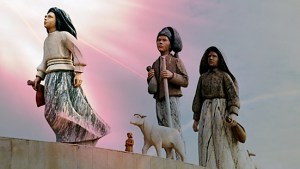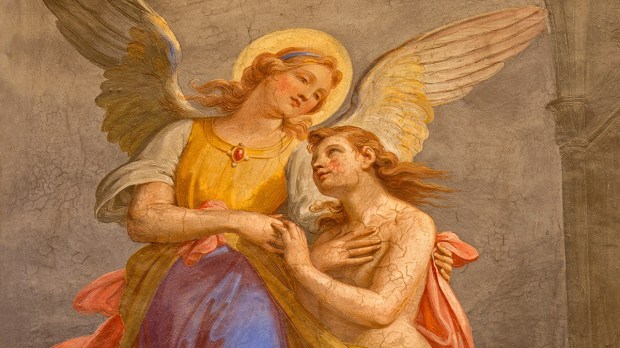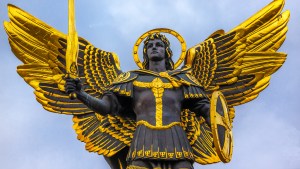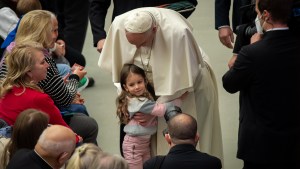National angels have been in the news recently, and reading about them has helped solve a problem that has nagged me my entire Christian life.
In March, angels appeared over Ukraine, according to a widely reported March
from Major Archbishop Sviatoslav Shevchuk of the Ukrainian Greek Catholic Church.“So many people from throughout Ukraine are turning to me saying that they saw luminous angels over the land of Ukraine,” the Greek Catholic Church leader said. He asked believers to pray that the angels would protect Ukraine.
St. John Paul II said that angels are assigned to nations. “The tasks of angels as ambassadors of the living God extend not only to individual human beings and to those who have special duties, but also to entire nations,” he said in his 1986 catechesis on the angels.
This helps answer an objection many people have to the Church: If God loves everyone, why does he reach out to only a few?
It’s a good question. Why would God choose only one tiny group of people, the Jews, to reveal his Name and Law to? And even today, why would he reveal the fullness of his revelation only to the Christian world?
The problem goes even deeper if you consider how long human beings lived without the written word. Wheaton College literature scholar Michael Drout points out that if all of human history were a calendar year, with the first human beings appearing January 1 and today being midnight on December 31, “The entire history of written literature would start on December 30. Everything else, all 363 days, would be unwritten, oral culture.”
Think of what that means: Almost all of the history of the Jewish people happened before any of it could be written down.
Of course, the first answer to this problem is in the beauty, truth, and goodness of creation itself. God doesn’t hide from mankind, but reveals himself in how he made the world — which shows him to be wise, an artist, and a loving provider. A whole Catechism chapter describes how.
But the Fathers of the Church see an important role for angels in “natural revelation” to.
A great book by 20th-century French Cardinal Jean Daniélou traces The Angels and Their Mission According to the Fathers of the Church.
Yes, the Jewish people received God’s singular revelation in Scripture, “But this does not mean that the other peoples living before the coming of Christ were completely deprived of divine assistance and excluded from the whole process of preparation,” he writes.
He says that for many of the Fathers of the Church, “whatever part of truth was known to the pagan peoples and was later to be recognized and taken up by Christianity, the wisdom of Roman law, the philosophical truths arrived at by Plato and Aristotle — all this came to them from the providence of the one God acting through the ministry of the angels.”
Remarkably, says Daniélou, Origen said that this even applies to the “secret and occult philosophy of the Egyptians and the astrology of the Chaldeans,” and even “the Hindu claims pertaining to the science of the Most High God.”
As the fifth-century Church Father Pseudo-Dionysius the Areopagite put it: “The universal providence of the one Most High God has, for the salvation of all the nations, entrusted them to angels who are to lead them toward God.”
That is good news for skeptics — and for all of us.
Another “national angel” has been in the news in recent years.
On March 25, Pope Francis became the most recent of several popes to respond to the request of Our Lady of Fatima to consecrate Russia to the Immaculate Heart of Mary.
She made the request during her 1917 appearances to three shepherd children of Fatima, but in 1916, an angel had appeared to the same three shepherd children to prepare the way.
“I am its guardian angel, the Angel of Portugal” he told them. “You must pray! Pray! The hearts of Jesus and Mary have merciful designs for you.”
Asking them to sacrifice for sinners, he said, “Above all, bear and accept with patience the sufferings God will send you.”
It is very consoling to know that every nation has an angel standing ready to protect and guide us.




